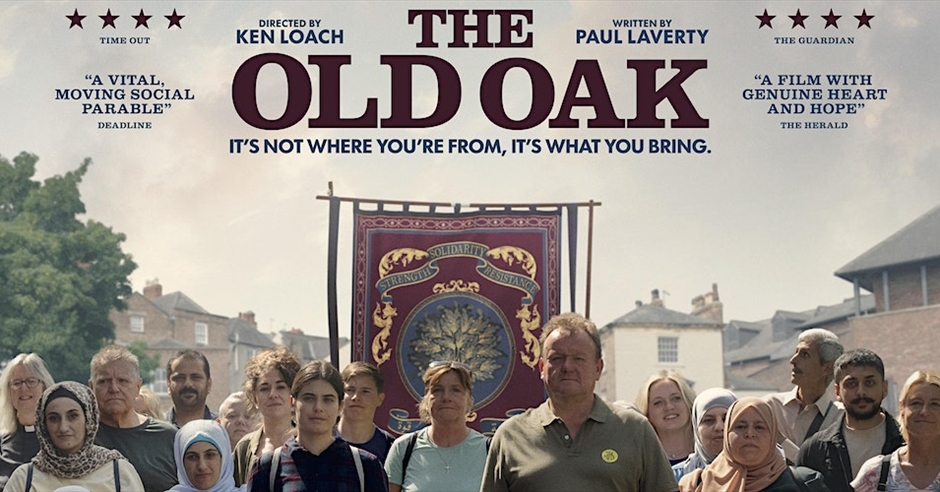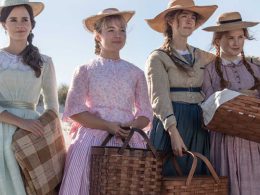Reviewed by Andrea Murray
The Old Oak is widely rumoured to be Ken Loach’s last film. At its premier at the Cannes Film Festival earlier this year he said, “I’m 87. My short-term memory is fading and my eyesight is not what it was.” Even still, the director’s characteristic brilliance and working-class empathy shines through in this film.
It is the third film of an unplanned trilogy made with longtime collaborator, screenwriter Paul Laverty. In I, Daniel Blake, Loach and Laverty exposed the human suffering caused by Tory austerity in Britain. In Sorry We Missed You it was the serfdom of the gig economy and its horrendous effects on working-class families. In The Old Oak, set in 2016 Brexit Britain, they take on a subject that liberal classes often shrug off as distasteful: refugees housed in hostels and hotels up and down Britain being abused by locals who have been influenced and radicalised by reactionary social media content.
However, Loach doesn’t demonise those who are seen by many as the most downtrodden of the white working class whose alienation and desperation can take racist and xenophobic forms.
Yet again Loach uses a cast of unknown, non-professional actors. T.J. Ballantyne (Dave Turner) is the landlord of The Old Oak, a run-down pub and the only community meeting space left in an equally run-down mining village on the outskirts of Durham, in north-east England. He’s divorced, estranged from his grown-up son and is prone to bouts of depression. The village and its residents have suffered deprivation since the mines closed in the ’80s.
The patrons of the pub are angry at many issues, not least property developers and foreign investors buying up the miners’ cottages for a pittance and renting them out exploitatively, which is pushing down the value of the locals’ homes, their primary remaining assets. Much of the anger is shared vociferously in the pub, with locals watching and sharing right-populist YouTube videos and Facebook posts.
A bus full of traumatised and terrified Syrian refugees arrive in the village and tensions in the community worsen. T.J. befriends Yara (Ebla Mari), a young Syrian woman who is a keen photographer. He shares old photos of the miners’ strike and the Durham Miners’ Gala with her, while she shares stories of her beloved father and other men from her Syrian town imprisoned by the Assad regime. T.J and Yara’s friendship is sneeringly mocked by drinkers in the pub.
T.J. refuses to allow locals to use the back room of the pub for a meeting to air their grievances, but then together with Yara and an aid worker called Laura (Claire Rodgerson), arranges a community supper to bring the two traumatised communities together for evenings of shared food, traditions and music. The Syrian people present the villagers with a beautiful banner embroidered with the words “Solidarity Not Charity” for Durham Miners’ Gala, further enraging some locals. Some of them take it on themselves to dangerously sabotage the evenings. When Yara and her family receive bad news from Syria the community rallies around them in their grief.
The overriding message of The Old Oak is that compassion can overcome hate. That working-class people are not competing with each other for scarce resources in rich countries, and that it suits governments in capitalist society to have working-class communities blame each other for the utter failings of the system. Instead, communities can and must unite in solidarity to fight xenophobia and racism.
If The Old Oak is Ken Loach’s final film, he leaves us with some desperately needed hope.












